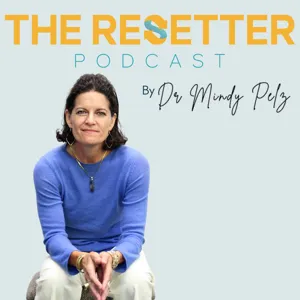Discovering Your Personalized Health Path - Fast Like a Girl Journal

Join Dr. Mindy as she introduces the Fast Like a Girl Journal, a personalized tool for fasting experiences. Created in collaboration with therapeutic journaling expert Alex Elle., this journal empowers individuals to understand their body's healing potential during fasting. Structured into sections focusing on self-belief, introspection prompts, and a 60-day tracker, the journal also includes engaging activities like coloring sheets, gratitude prompts, and goal-setting strategies. Designed to promote holistic well-being, the Fast Like a Girl Journal aims to guide individuals on a transformative journey towards wellness and self-discovery.
To view full show notes, more information on our guests, resources mentioned in the episode, discount codes, transcripts, and more, visit https://drmindypelz.com/ep232
Check out our fasting membership at resetacademy.drmindypelz.com.
Please note our medical disclaimer.





